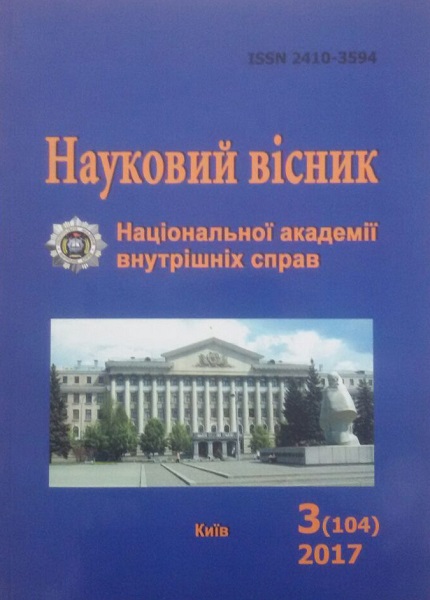CRIMINAL LIABILITY FOR CORRUPTION CRIMES IN UKRAINE AND CERTAIN FOREIGN COUNTRIES: COMPARATIVE-LEGAL RESEARCH
Keywords:
corruption crimes, criminal responsibility, comparative-legal research, criminal legislation, active and passive corruption, punishment
Abstract
The problems of criminal responsibility for corruption crimes in Ukraine and certain foreign countries in the context of comparativelegal knowledge are considered. The peculiarities of the normative consolidation of the corresponding corruption crimes in different countries of the world, the specifics of the elements and signs of their corpora delicti, the types and limits of punishment for their commission and other criminal-legal characteristics are established.
Downloads
Download data is not yet available.
Abstract views: 67 PDF Downloads: 112
How to Cite
[1]
Savchenko, A. 1. CRIMINAL LIABILITY FOR CORRUPTION CRIMES IN UKRAINE AND CERTAIN FOREIGN COUNTRIES: COMPARATIVE-LEGAL RESEARCH. Scientific Herald of the National Academy of Internal Affairs. 104, 3 (1), 364-379.
Issue
Section
Іnternational experience
- Authors reserve the right to authorship of their own work and transfer to the magazine the right of the first publication of this work under the terms of the Creative Commons Attribution License, which allows other persons to freely distribute published work with mandatory reference to authors of the original work and the first publication of an article in this magazine.
- Authors have the right to enter into separate additional agreements on non-exclusive dissemination of the work in the form in which it was published in the journal (for example, to post an article in the institution's repository or to publish as part of a monograph), provided that the link to the first publication of the work in this journal is maintained.
- The journal's policy allows and encourages the posting of articles by authors on the Internet (for example, in electronic storehouses of institutions or on personal websites), both before the submission of this manuscript to the editorial office and during its editorial processing, as this contributes to the creation of a productive scientific discussion and positively affects the efficiency and dynamics of citing the published work.




